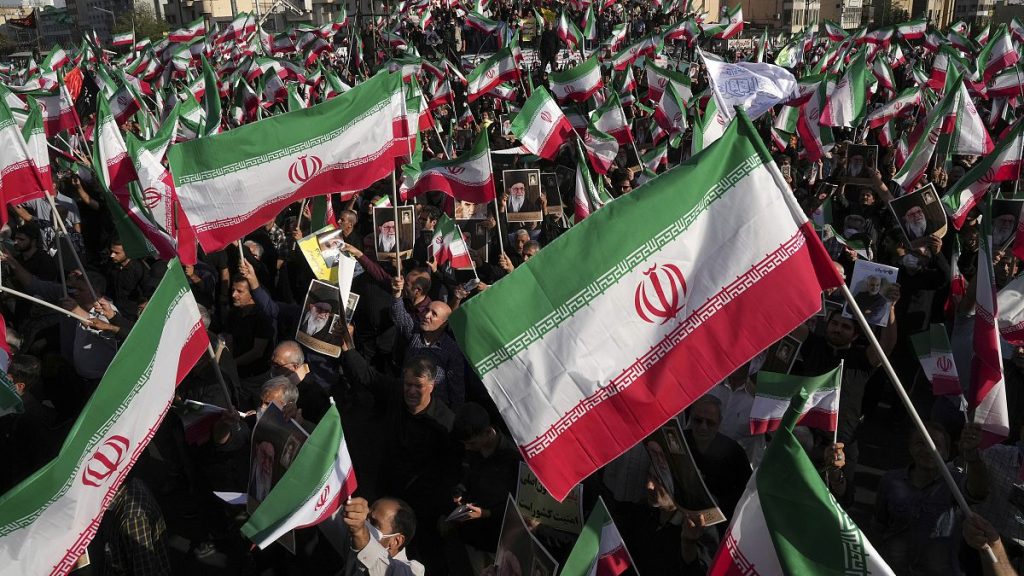The detention of Italian journalist Cecilia Sala in Tehran has ignited a diplomatic firestorm between Italy and Iran, raising concerns about press freedom and the potential use of hostages as political pawns. Sala, a reporter for the Italian daily newspaper Il Foglio, was arrested on December 19th, 2023, six days after arriving in Iran on a valid journalist visa. Iranian authorities have confirmed her arrest, citing violations of Iranian law, but have provided no specific details regarding the alleged infractions. This lack of transparency, coupled with alarming reports about Sala’s detention conditions, has fueled public outcry and intensified diplomatic pressure on Iran.
The Italian government has responded swiftly and forcefully, summoning the Iranian ambassador to demand Sala’s immediate release and ensure her humane treatment while in custody. This includes guaranteeing consular access, visitation rights, and respect for her fundamental human rights. The Italian foreign ministry has expressed deep concern over reports suggesting Sala is being held in Evin prison, a notorious detention facility known for its harsh conditions and political prisoners. The gravity of the situation is underscored by its prominence in Italian media and its inclusion in President Sergio Mattarella’s end-of-year address to the nation.
Adding complexity to the already tense situation is the seemingly intertwined fate of Sala and Mohammad Abedini-Najafabad, an Iranian man detained in Italy just three days prior to Sala’s arrest. Abedini-Najafabad was apprehended at Milan’s Malpensa airport on a US warrant related to a drone attack in Jordan that killed three American troops. US prosecutors allege his involvement in the attack, citing evidence linking him to the drone’s navigation system. This temporal proximity has fueled speculation that Sala’s detention might be connected to Abedini-Najafabad’s case, with concerns that Iran might be using her as leverage to secure his release.
Italian media has openly speculated about the possibility of Sala being used as a bargaining chip by Iran in exchange for Abedini-Najafabad. While the Italian Foreign Minister, Antonio Tajani, has not explicitly denied this scenario, the historical precedent of Iran using detainees with Western ties as leverage in negotiations lends credence to these concerns. Such practices, reminiscent of the 1979 US Embassy hostage crisis, raise serious questions about Iran’s respect for international law and the safety of foreign nationals within its borders. This potential link between the two cases transforms Sala’s detention from a singular instance of press freedom violation into a complex international incident with potential ramifications for Italy, Iran, and the United States.
The case has garnered significant attention in Italy, dominating headlines and sparking public debate. The opposition Democratic Party has joined the calls for Sala’s immediate release, denouncing the reported inhumane treatment she is enduring in detention. The party has cited reports from Sala’s family indicating she is sleeping on the floor and has not received essential personal items from the embassy. These details have further inflamed public sentiment and amplified calls for the Italian government to take decisive action to secure her release.
The unfolding situation presents a difficult diplomatic challenge for Italy, requiring a delicate balance between securing Sala’s freedom and navigating the complex political landscape involving Iran and the United States. The allegations against Abedini-Najafabad, particularly their connection to the deaths of American service members, introduce a sensitive element that could further complicate negotiations. The US Justice Department has declined to comment on any potential link between Sala’s case and their ongoing drone investigation, adding another layer of uncertainty to an already volatile situation. This silence, however, doesn’t preclude the possibility of behind-the-scenes discussions and diplomatic maneuvering between the involved countries. The outcome of this intricate situation remains uncertain, with Sala’s fate hanging in the balance as diplomatic efforts continue.

